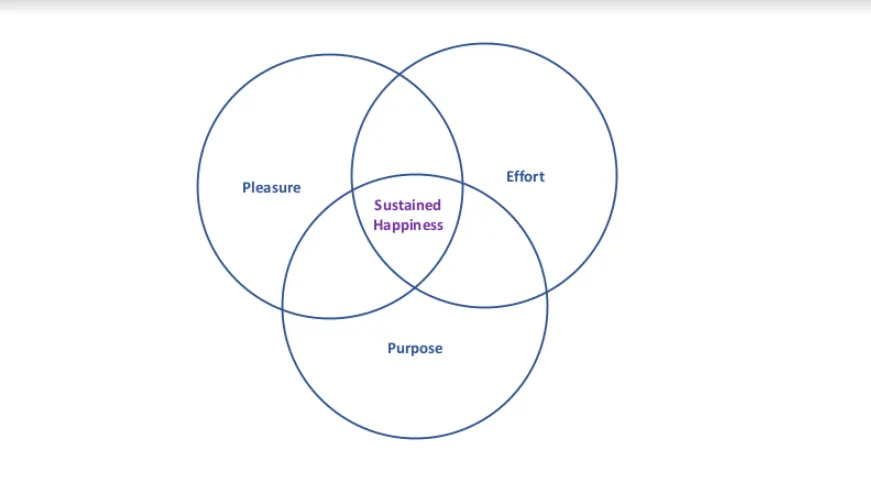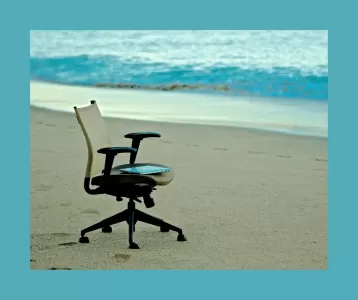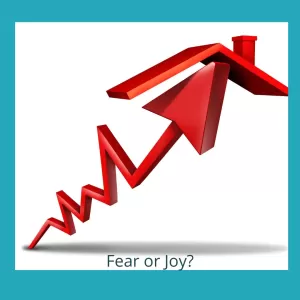Sustained Happiness Series - Pleasure, Effort, and Purpose: Effort
This is the second of three articles regarding living a life in which happiness is your constant companion instead of an occasional visitor.
In the context of our careers, a person with a typical salaried position is hired into a 40-hour-per-week job. Sometimes the hours fly by while other times an hour can seem to take twice as long. Since one hour is always 60 minutes, what do you consider the difference to be between these two experiences?
Our focus or immersion into a task draws our attention to that activity, blocking out distractions. As a result, we don’t notice the passing time. Our focus can come from the urgency of a request, the precision of the steps, or the achievement of the goal. We can train ourselves to perform and focus for these conditions. Our capacity or stamina for any of these activities is key to our long-term productivity, which will tie into our eventual success, however that success is measured.
Early in my career I held several sales positions. My enjoyment came during the learning period. My interest piqued as I learned the product, learned the sales pitch, and then during the initial phase of presenting to clients. When the learning period ended, my interest in the job diminished as well. The challenge of learning how to convert prospects to clients did not match my own enthusiasm for the background information or the product’s relationship to the competition. Once training ended, I did the job well enough to receive acknowledgements and win competitions, but, with time, I became bored, which led to looking for another job to find the enjoyment. Unwittingly, landing another sales job just meant the cycle repeated.
Psychologist Martin Seligman’s formula for sustained happiness recognizes the type of activity –in the form of effort required – makes a difference. Most people are willing to do the work required of their role, that is, we are willing to put in the effort needed to succeed. Our happiness is enhanced when the activity requires effort that we also enjoy. Note, I did not say it was necessarily easy, in fact, the effort might require significant mental and or physical exertion. The more we enjoy something, the more willing we are to do that activity. Our inventiveness and creativity are more easily accessed in these situations, leading us to additional possibilities.
For an activity to contribute to our happiness over time depends upon the relationship of three characteristics. Those characteristics are Pleasure, Effort, and Purpose.

Using Seligman’s assertion of the presence of Pleasure, Effort, and Purpose in the appropriate proportions for us to experience happiness over time, how would this apply to my sales example? The effort I enjoyed was in the learning the details about a product and how the product compared or contrasted to the competition. I spent time thinking of analogies to communicate the benefits of the products to clients. Given my joy in this area, over going from client to client in pursuit of a sale, it would have made more sense for me to have looked for opportunities in marketing. Marketing would have presented more opportunities and rewarded my efforts. Exploring this possibility would likely have been more productive for me than seeking another sales job.
So where does happiness come into this conversation? We all want to enjoy what we do and feel good about our employment. The people who are most successful in their careers focus on building their competence and expertise and don’t define themselves by their titles. Those with this type of focus become more valuable to their company.
Competence and expertise are developed and learned and can lead to higher compensation. No one is born with an expertise. We are born with aptitudes or attributes that support us to develop an expertise. It is the time and effort that forges the competence. It’s much easier to put in the time and effort to a job when we enjoy the work. This connects to our productivity and the profitability of the company and links to our compensation both financially and emotionally.
What you have done for the past 10-20 years doesn’t have to be what you do going forward. Teaching yourself how to notice what activities you enjoy and learning to include them in your decisions is part of what is needed to have a life of sustained happiness.
I can help you get started on the path to career happiness. Feel free to contact me for a free consultation.









